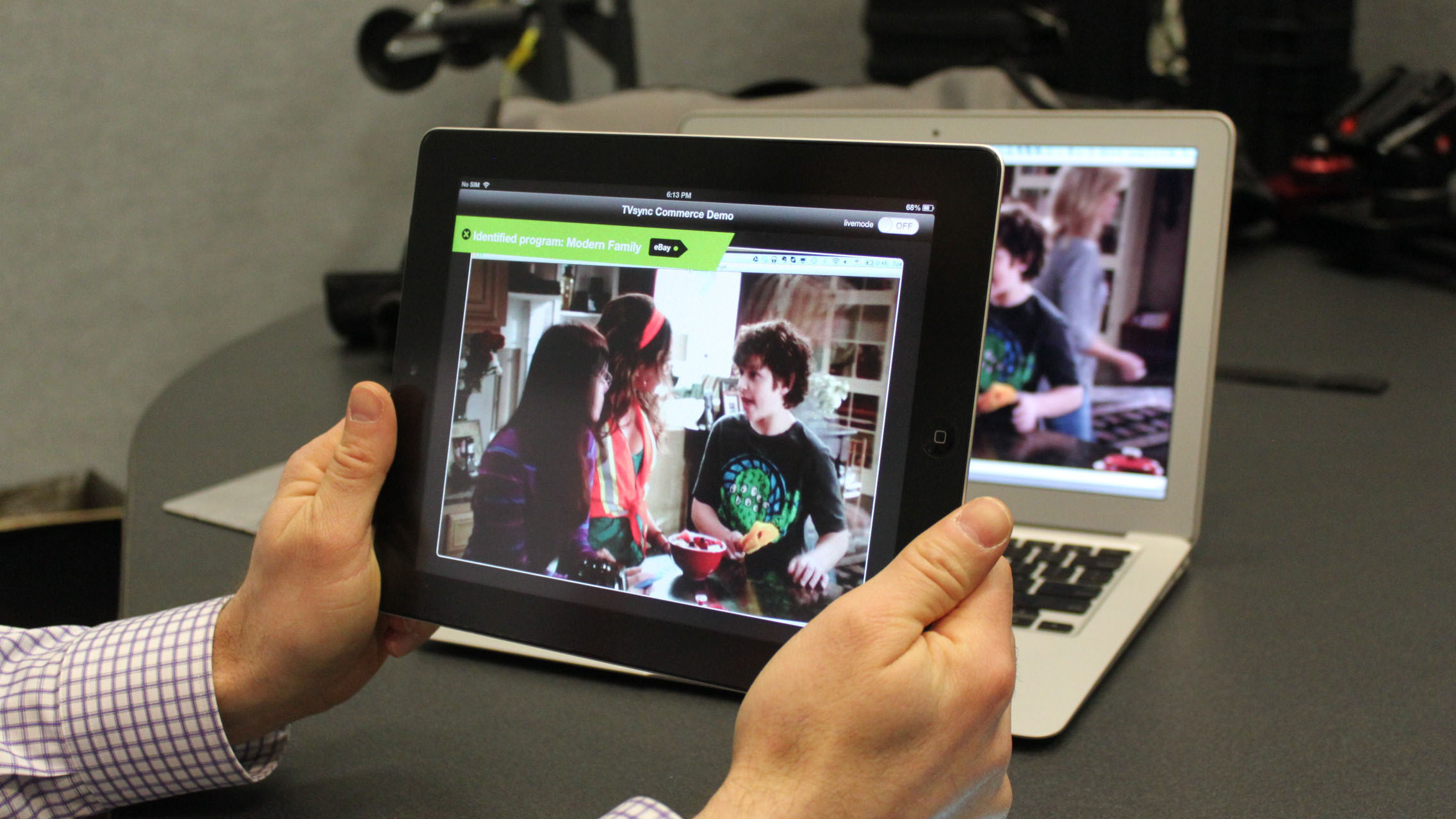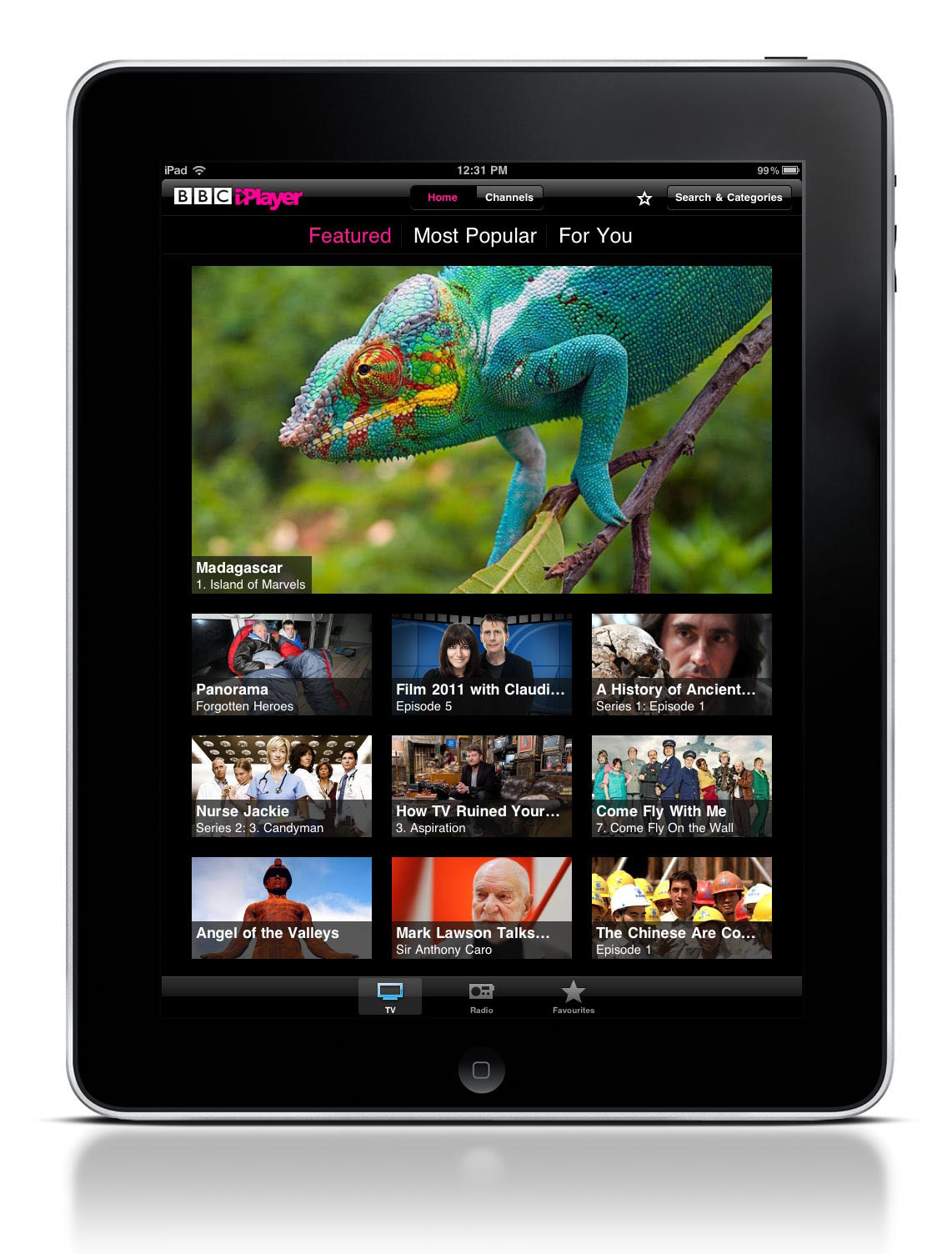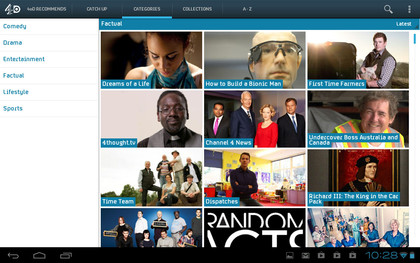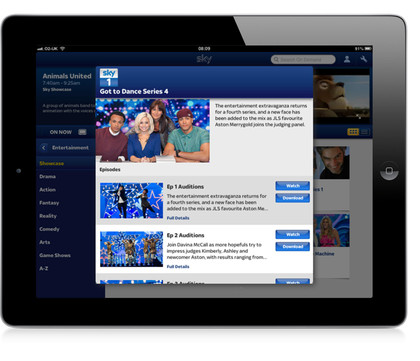How our second screen habit is changing TV forever
Phones and tablets bringing rapid change

Almost a third of us now own a tablet, and a majority are looking at either a smartphone or a tablet while watching TV. With our attention diverted from the main screen, the traditional TV ecosystem is falling apart.
The BBC iPlayer and Sky Go Extra now offer downloads to iOS gear, Panasonic has unveiled an app that allows the viewing of a second TV channel on a tablet app if you buy one of its new twin HD tuner TVs, and 'companion' apps from Zeebox to Twitter and Shazam are changing the way we interact with TV.
There are seismic shifts happening in how society uses technology for entertainment, and it's not escaped the attention of broadcasters. Now they're beginning to respond to our habits; a second screen revolution is happening in homes, but the content owners are not about to leave things to chance.
Different camps
Second screen viewing falls into a few different camps. The first, and by far the most embedded form of second screen use is the BBC iPlayer. With 174 million requests during December 2012 – a 22 percent increase on the previous year – this pioneering catch-up TV app is the standard bearer around the globe.
"Go to Asia and America and people are talking about the iPlayer as best practice, about how they're doing, and how it's operating," says Carl Hibbert, Head of Broadcast Research at analyst firm Futuresource Consulting. "The free-to-air broadcasters are almost being led by iPlayer, it's a real flagship product around the world."

The likes of ITV Player (321 million views for first 9 months of 2012, a 23 percent increase) and 4OD (136 million views in the first three months of 2012, a 10 percent increase) have apps on smartphones and tablets, though these commercial broadcasters offer a mix of pre-roll adverts (4OD) and post-window payment (programmes on ITV Player are only free in the initial seven day catch-up period). Virgin Media's TV Anywhere app for TiVo offers live TV streaming so you can watch one while you, err, watch another.
In an effort to challenge the likes of Netflix – which is increasing its offering beyond films to stream exclusive TV series like House of Cards – the BBC recently announced that it was to broadcast around 40 hours of TV shows online before its initial terrestrial broadcast. That tells you all you need to know about how in flux the industry is.
Get daily insight, inspiration and deals in your inbox
Sign up for breaking news, reviews, opinion, top tech deals, and more.

Moving to downloads
Streaming catch-up TV over WiFi or 3G on an app is one thing, but the iPlayer has recently begun offering downloads through its iOS apps that are good for 30 days. For those who travel frequently, it's an absolute boon. "Everyone likes to talk about broadband and online viewing, but we don't have access to the internet all the time," says Hibbert. "You can probably can get some of it over 3G, but people are on restrictive data plans. We'll possibly see more experimentation from operators on downloads." For £5 a month for existing Sky subscribers, Sky Go Extra now offers downloads, too.

The problem all commercial broadcasters have with downloads is less one of negotiating different rights from the content owners and more to do with the danger of severing their links to viewers. "If it's downloaded you've effectively lost a direct connection," says Hibbert. "If that consumer doesn't watch that content for 20 days, is the pre-roll advertising that was inserted at the time of download still relevant? If they're not relevant, then is the advertiser willing to pay?"
The iPlayer, of course, doesn't have such thorny issues to worry about. There are, however, some innovative attempts to bolster the first screen and bring the second screen in-sync with it, and so all the while preserving that link that advertisers demand.
Jamie is a freelance tech, travel and space journalist based in the UK. He’s been writing regularly for Techradar since it was launched in 2008 and also writes regularly for Forbes, The Telegraph, the South China Morning Post, Sky & Telescope and the Sky At Night magazine as well as other Future titles T3, Digital Camera World, All About Space and Space.com. He also edits two of his own websites, TravGear.com and WhenIsTheNextEclipse.com that reflect his obsession with travel gear and solar eclipse travel. He is the author of A Stargazing Program For Beginners (Springer, 2015),
